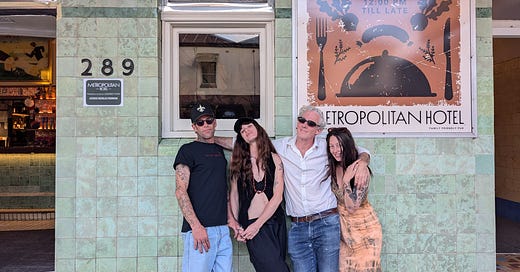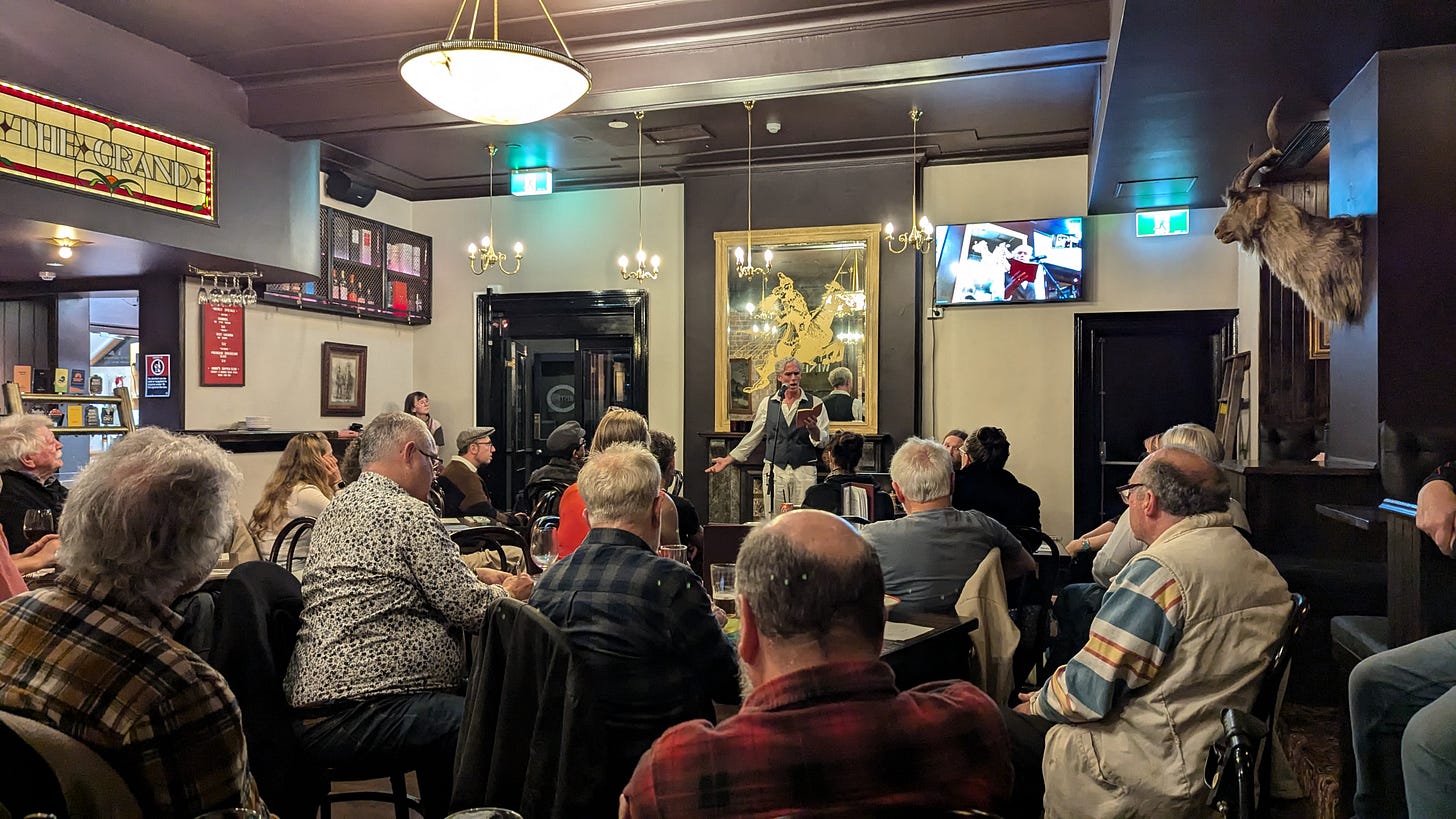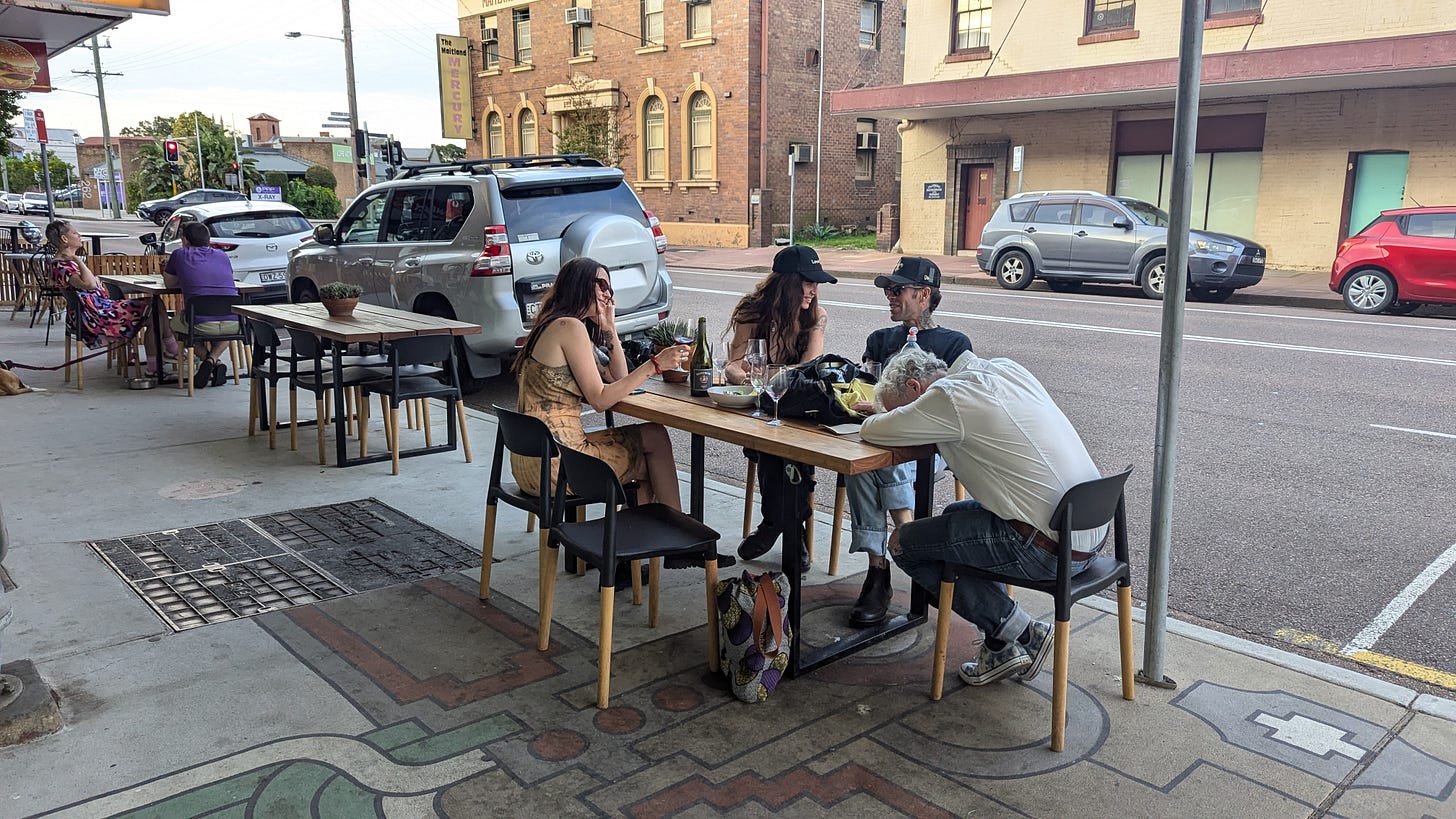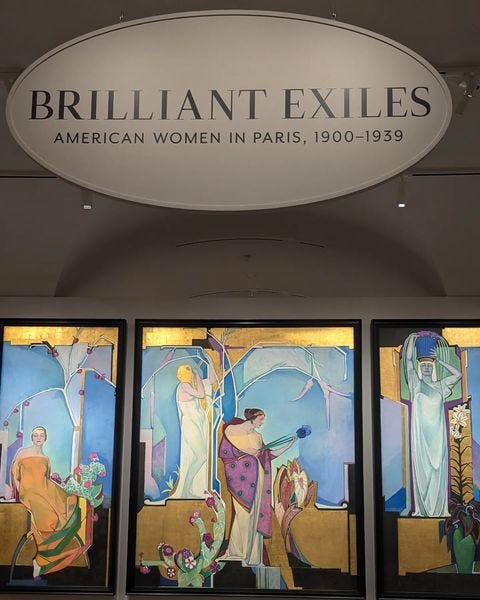Meet Paris-based poet and writer Jason Stoneking
rejecting mainstream, middle class values and going on the road
It’s good-natured weather on a Friday afternoon in Maitland, just after quitting time. I am giddy to meet up with American poet Jason Stoneking, who will be arriving shortly with his crew of artists. Jason, 50, has lived most of his adult life in Paris, and this is his first time in Australia. He’s not the type of guy that comes down under to see the Sydney Opera House and stay in nice hotels. Jason arrived a few weeks ago, met up with friends, they got on the road and headed to the desert.
I saw him Monday night (the week prior) at Poetry at the Pub. I liked his poem, and when I realized he was on a road trip chasing highs, breaking down and writing stories along the way I knew he was a man after my own heart (and perhaps everyone’s heart of hearts.)
I’ve lived in the same place for over a decade; I work for local government and commercial media, but I idealize a life of vagabonding and letting go, losing myself to the open road. Oh how my heart aches and swells for travelers. Romantic visions of hitchhikers and ramblers stroll through my head. I hear quotes like Tolkien’s “Not all who wander are lost” and Franklin’s “either write something worth reading or do something worth writing.”
The crowd welcomed Jason’s words that Monday evening, as you’ll see in the video above, and then he and his friends were off to Melbourne to read more poems. It’s difficult to find examples of Jason’s words online, as his artform is typically writing bespoke manuscripts in a single draft by hand, addressed to a specific person who receives only one copy. I’d love to find more of his work, but also I love the enticing scarcity factor here that makes you celebrate life in the present. I like the way he’s embraced rarity and even just the modern novelty of something handwritten.
“You can't get my stuff on am*z*n,” his Twitter handle says.
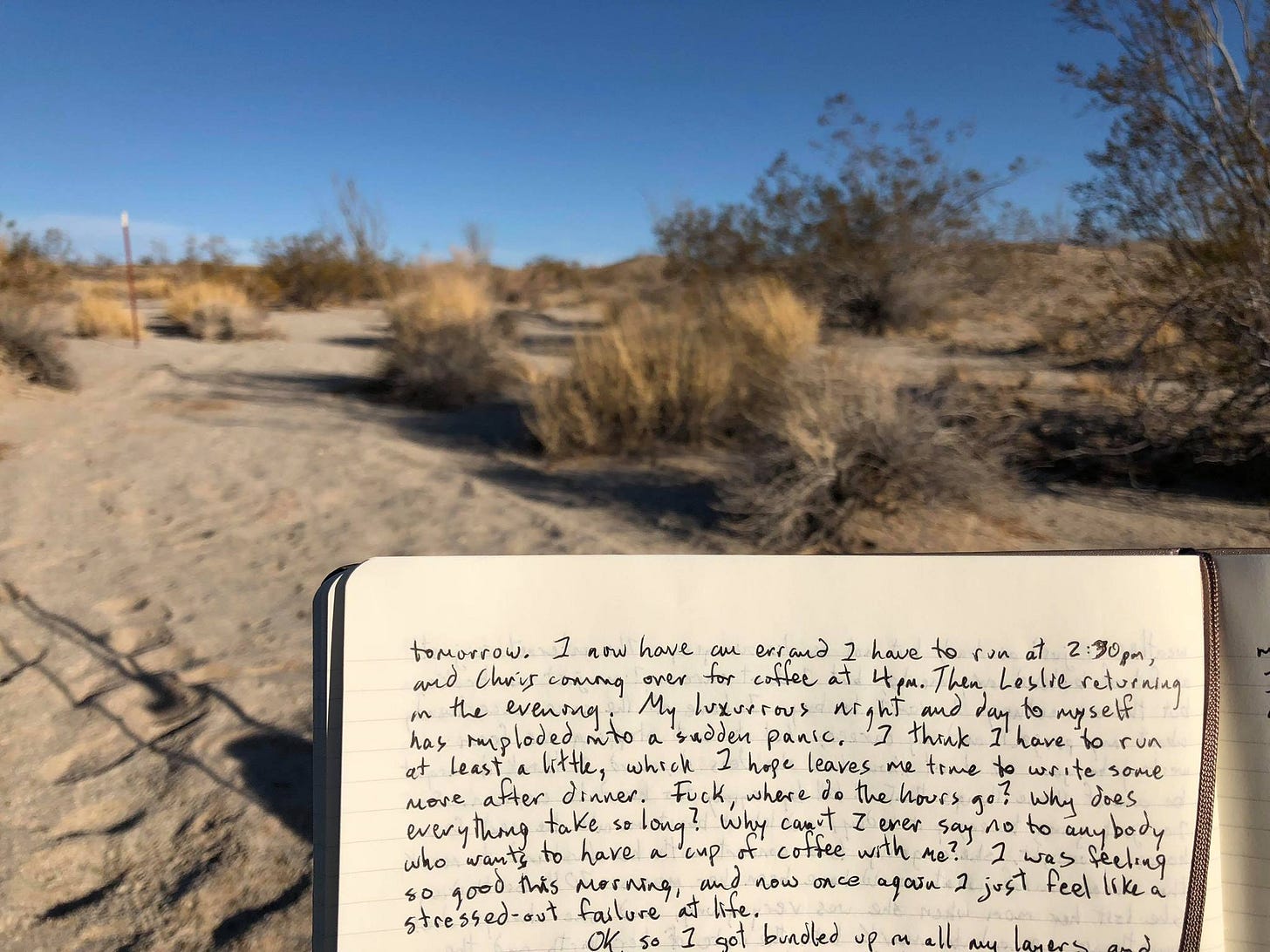
That night at Poetry at the Pub I asked him if I could write about him, and 10 days later we are all gathering at the Metropolitan Hotel.
Jason arrives discombobulated after having taken a toke of something strong; it was a parting gift from a customer in exchange for Jason writing a portrait about him.
It hit him hard.
I start the interview meeting his travelling friends Layla Rose, Makayla Jacqueline and Dillon speaking on his behalf. Eventually he comes good.
”Oh, Jesus, oh, what a strange day,” Jason says, lifting his head from the table. ”We had a great reading in Newcastle and have been continuing on tour since then, several stops, seen a lot of Australia.”
I ask him why he decided to come to Australia.
”Last year, I was in a really dark space for a while because I lost both my parents, really close to each other, had a relationship end, and I was really done with life, like in a really, really dark way, and these guys, Dillon and Layla, recognized me on a rainy street at night in Paris and yelled my name,” he says as he starts to cry.
Before they met him in person, the two were Instagram followers and fans of Jason’s work.
Dillon and Layla invited Jason to Australia and he accepted. Makayla joined the road trip when they got to Melbourne a week ago. For several weeks they’ve been making art under the stars and going through all kinds of emotions. They were all in the outback when Jason received the tragic news that his brother had passed away in a housefire.
”I feel like I'm out in the middle of the Outback, in the red dirt, in a fucking chariot with my guardian angels,” he says.
Jason was born in Maryland, then moved to New Hampshire, then Pennsylvania, where he had a bad experience in East Stroudsburg in the 80s. He quit school at 14.
All the “cliché stuff” led him to Paris in his early 20s in 1996. He’d been on tour with the Grateful Dead and seen as much of America as he could. He went through homelessness, attended rainbow gatherings, squatted on beaches and overcame drug addictions.
Now Paris feels like the closest thing to home.
I ask him if he likes Kerouac and he tells me that’s a loaded question.
”I think Kerouac is fundamental to a branch of American literature that changed everything. I almost can't like any contemporary Western gesture without him as some sort of seminal influence. It's almost like, you can't like any kind of music, if you don't like rock and roll, or if you don't like blues. He's back in there somewhere. Obviously, there's problematic shit in the whole generational legacy with misogyny and violence and all kinds of different types of scandals. But that literary gesture is fundamental to generations of people considering the possibility of rejecting mainstream, middle class values, going on the road, trying to be poets, even exploring their own sexuality. So I think, in a way, everybody owes a debt to Kerouac,” Jason says. “I'll sometimes say, ‘I'm tired of carrying water for those dead, old, famous guys that I don't even know who gets the money when you mention their name anymore,’ you know?”
But then Dillon reminded Jason that they owe it to younger people to explain the stepping stones and influences that got them on the tracks they got on.
”Maybe that just makes us the custodians of somebody like Kerouac's complicated legacy, you know? I have to own up to having been influenced by that, and I have to wrestle that through time a little bit,” Jason says.
I wonder if Jason has a more European view of Americans, seeing as he lives in Paris. He’s not sure about that, but he thinks it’s still a thing to go out and explore the frontiers of your country and yourself, looking for some context for why you feel the way you feel.
”Even looking for some evidence of otherness or some kind of proof that there are also people that feel some different shit, just like somebody wrote some books that delivered me out of the difficult little town I was in, somebody else shamed them out of their little box with something,” Jason says. “And there's all these lineages of these beautiful hand-me-downs through, poetry, religion, meditative practice and art.”
I turn off the recorder and we continue the conversation, talking more travel and art.
I was so compelled to meet them and I’m grateful they made time for me. Thanks so much to Makayla Jacqueline, Layla Rose and Dillon for getting Jason to me that fateful Friday afternoon and sharing your stories with me too.
Check out Layla Rose and Dillon’s band, Les Free Romantiques.
The three Aussies have returned to Brisbane and Jason is back in Paris, on to the next chapter.
PS. During my interview with Jason I kept thinking about an exhibition at the American Art Museum I saw when I was in DC earlier this year. It was dedicated to American expat artists (women) in Paris.
Since I’ve started my job at the art gallery I’ve extensively mulled over the definition of art. Encounters like these demonstrate that being an artist isn’t just about what you create, it’s the journey it takes to get there. We can’t all be expats in the city of lights, but surely we can all take a handwritten leaf out of the books of folks like Jason, Mercedes De Acosta, Jim Morrison and Michael Hutchence.
I never finished On The Road, but I want perpetual motion. The unexamined life is not worth living and neither is one of conformism, predictability and paying bills. Living is art. Art is life.
